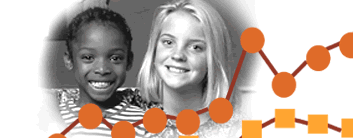|
Summary 156 (Issued April, 2010). Chavira, A., Garland, A., Yeh, M., McCabe, K., & Hough, L. (2009). Child anxiety disorders in public systems of care: Comorbidity and service utilization. The Journal of Behavioral Health Services and Research, 36:4, 492-504. DOI: 10.1007/s11414-008-9139-x. Results show that youth having anxiety comorbid with another psychiatric disorder were significantly more likely to receive inpatient services than youth with anxiety only. Inpatient services for anxiety only or comorbid anxiety were more likely to originate through public service sectors for substance abuse, mental health, or special education than from child welfare or juvenile justice.
Summary 155 (Issued August, 2009). Hernandez, M., Nesman, T., Mowery, D., Acevedo-Polakovich, I. D., & Callejas, L. M. (2009). Cultural competence: A literature review and conceptual model for mental health services. Psychiatric Services, 60(8), 1046 – 1050. Based on a review of the research literature, the authors provide an expanded definition of organizational cultural competence, which states that “cultural competence occurs when there is compatibility among four important factors: community context, cultural characteristics of local populations, organizational infrastructure, and direct service support” (p. 1047).
News 0149 (Issued November, 2009). Soni, A. (2009, April 17). The five most costly children's conditions, 2006: Estimates for the U.S. civilian noninstitutionalized children, ages 0-17, MEPS Statistical Brief 242, 1-5. [Rockville, MD: Agency for Healthcare Research and Quality].
News 0148 (Issued August, 2009). We send this News Brief in case you didn’t see this weeks’s MedLine and HealthDay releases. Source: Olfson, M. & Marcus, S. C. (2009). National Patterns in Antidepressant Medication Treatment. Archives of General Psychiatry, 66:848-856.
Summary 154 (Issued July, 2009). Silverman, W. K., Ortiz, C. D., Viswesvaran, C., Burns, B. J., Kolko, D. J., Putnam, F. W., et al. (2008). Evidence-based psychosocial treatments for children and adolescents exposed to traumatic events. Journal of Clinical Child & Adolescent Psychology, 37(1), 156 - 183. Findings of this literature review and meta-analysis indicate that Trauma-Focused Cognitive Behavioral met criteria for well-established, while School-Based Group Cognitive Behavioral Treatment programs were classified as probably efficacious.
News 0147 (Issued April, 2009). This News Brief provides a direct link to the American Recovery and Reinvestment Act of 2009 (aka “Economic Stimulus Package") and additional sources of information about the ARRA and the provision of mental health services and other supports to children and their families.
View literature previously summarized.
|





